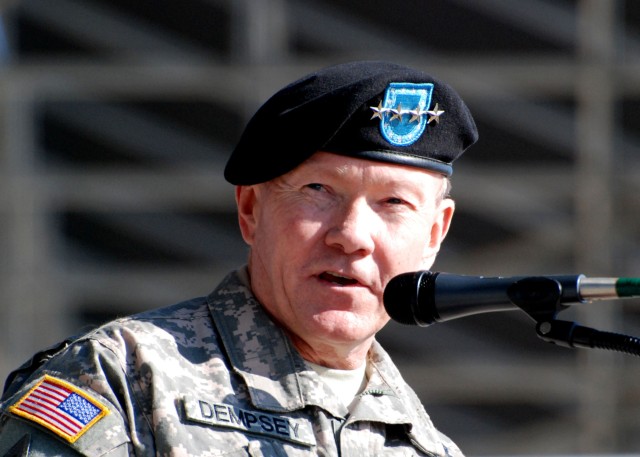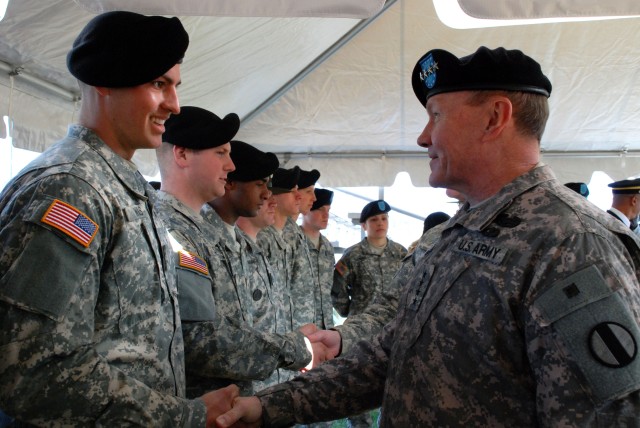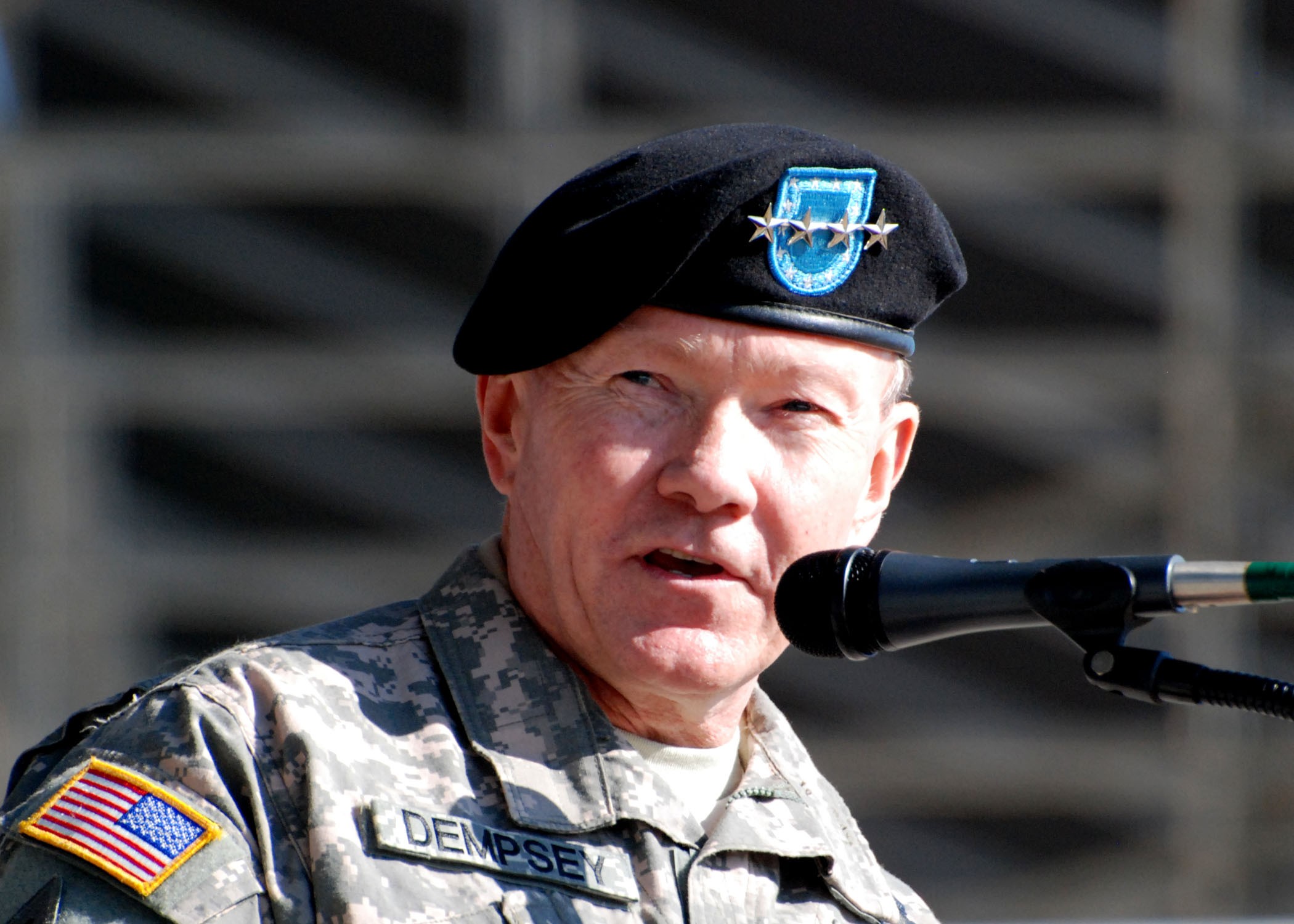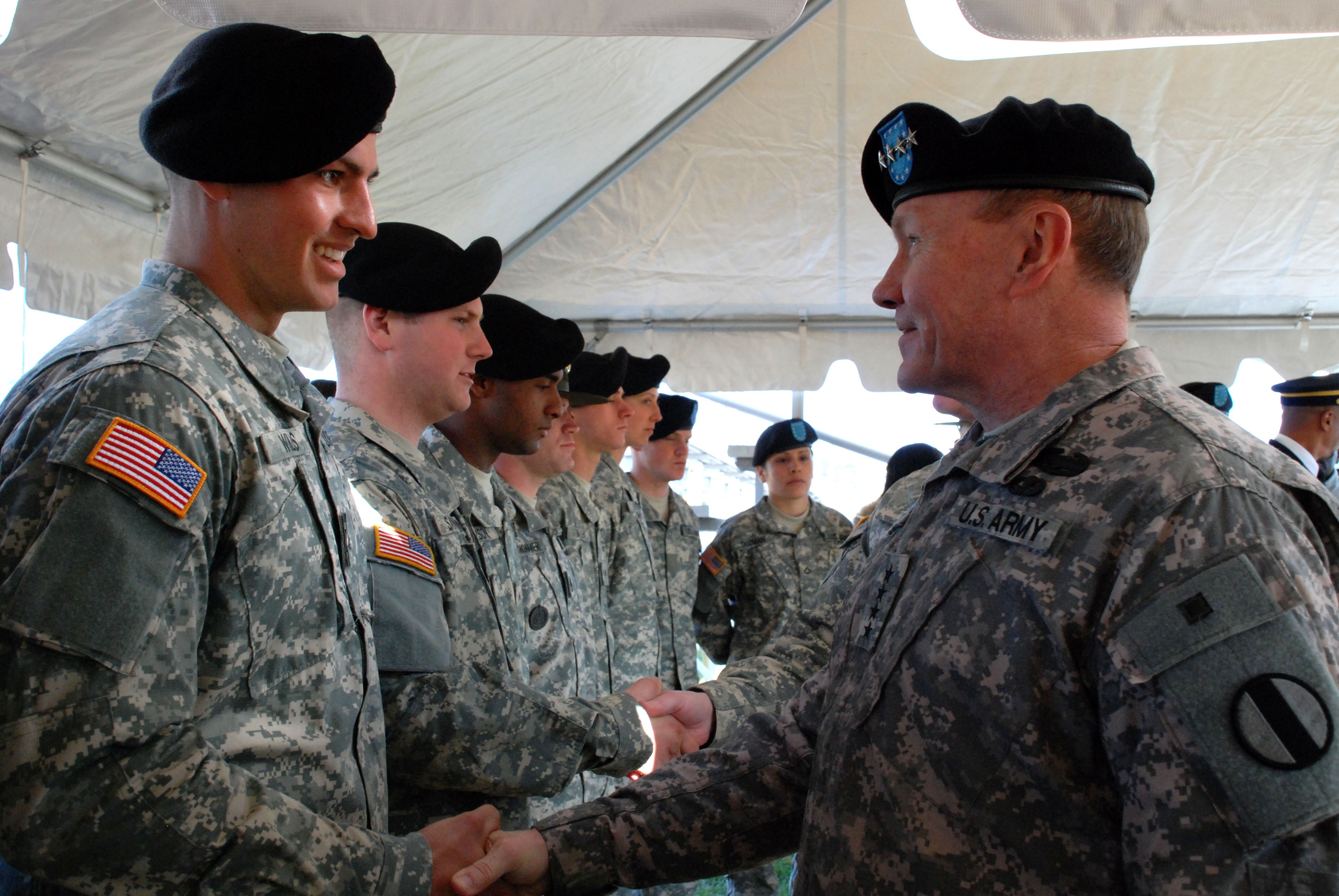As the fight in the Global War on Terror shifts from Iraq to Afghanistan, Army leaders are looking at how to shift the focus of training to deal with the renewed emphasis of fighting in one of the world's poorest countries.
"There will be adaptations," the Army's top trainer said Friday during a two-day visit to Fort Jackson.
The commander of the U.S. Army Training and Doctrine Command, Gen. Martin Dempsey, said there will not necessarily be changes in the conduct of counterinsurgency operations - the tactics, techniques and procedures - but rather changes in the training on how to work with the local population and operating in a different physical environment.
"It's a harder country to get around in, it's a harder country to resupply; it's just a harder country," Dempsey said. "It's the third or fourth poorest country in the world. In Iraq, you would recognize road networks, an electrical grid, it's somewhat modern, particularly for that part of the world. There is nothing modern about Afghanistan."
Dempsey also stressed the differences in terrain. Afghanistan is a mountainous country, with altitudes reaching nearly 25,000 feet.
"In the Hindu Kush region (near the Pakistan border) you could be serving at 14 or 15 thousand feet. But if you are down in Kandahar you are in a desert-type climate," he said. "So helicopter pilots for instance, have different training challenges in those conditions. There will be changes. We are aware of them. We actually started making them a few months ago."
There will also be cultural differences between Afghanistan and Iraq. Soldiers will have to adapt. Dempsey noted that while the same counterinsurgency challenge exists - the enemy living among the people - the enemy has a greater influence on the local populations.
"The tribal networks, the degree to which religion does, or doesn't, play a factor, the degree to which the influences emanate out of Pakistan all have an affect on the local population," he said.
With the Global War on Terror likely to continue for several more years, TRADOC is also looking at additional training during Basic Combat Training to help Soldiers deal with the stress of deployments.
Suicides in the Army have increased each year since 2004. There were 128 suicides last year in the active Army, with another 15 cases still pending a determination, according to data compiled by Army human resources officials. This was up from 115 suicides in 2007.
"I think that we need to take a look at a comprehensive fitness program, which we already are, that right from the beginning of a young man's or woman's experience in the Army we begin building coping skills before the stress comes," Dempsey said. "What we are trying to do is identify skills that we can give our Soldiers - intellectual, physical, spiritual - to build those skills into someone from the time they raise their hand, so that when stress hits, they are armed to deal with it."
Michael.A.Glasch@us.army.mil




Social Sharing